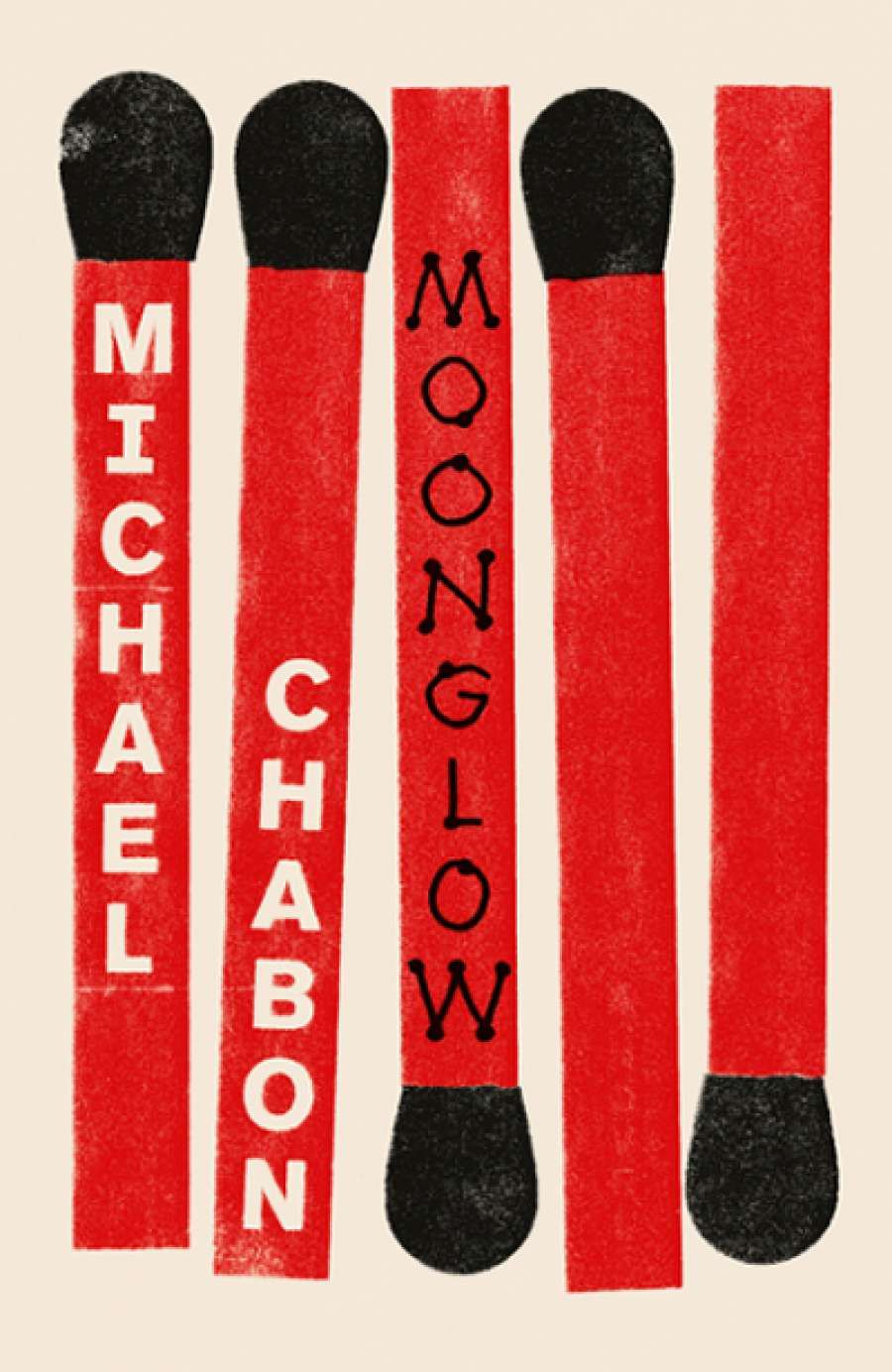
- Free Article: No
- Contents Category: Fiction
- Custom Article Title: Kevin Rabalais reviews 'Moonglow' by Michael Chabon
- Book 1 Title: Moonglow
- Book 1 Biblio: Fourth Estate $39.99 pb, 436 pp, 9781460753224
Moonglow begins with the young Chabon journeying across the country to visit his dying grandfather in California. There, over the final ten days of his life – or eight, if we are to believe another figure that Chabon provides late in this novel which ventures in many directions and whose narrative becomes, ultimately, cumbersome – the man plunges into the secrets of his life. Under the influence of painkillers, the character we know only as ‘my grandfather’ reveals his picaresque adventures. ‘Out flowed a record of his misadventures, his ambiguous luck, his feats and failures of timing and nerve,’ Chabon writes. We follow him through the Jewish slums of pre-war Philadelphia to the invasion of Germany and back to America, where he commences one life after another. One of them places him at work in the heat of America’s space program. Other escapades include hunting the Nazi V-2 architect Wernher von Braun, the attempted murder of his business partner, and blowing up a Washington, D.C. bridge.
If there were a canon of stellar Author’s Notes, Chabon would earn a place with his entry for Moonglow: ‘In preparing this memoir, I have stuck to facts except when facts refused to conform with memory, narrative purpose, or the truth as I prefer to understand it. Wherever liberties have been taken with names, dates, places, events, and conversations, or with the identities, motivations, and interrelationships of family members and historical personages, the reader is assured that they have been taken with due abandon.’
Some of the novel’s finest writing resides in that note. Despite the tender relationship between the characters we know only as ‘my grandfather’ and ‘my grandmother’, Moonglow strains as it attempts to reveal the secrets of these characters’ lives. In a novel that the author encourages us to read as autobiographical, Chabon remains, throughout, uncharacteristically clinical. Moonglow proves most successful when it focuses on family life, the relationship between ‘my grandfather’ and ‘my grandmother’, and examines the myths that one generation offers another. We follow the grandfather home from the war. Soon he meets a young European immigrant with a complicated past. Chabon writes of their meeting: ‘Then he saw that in gun-colored ink on the inside of her left arm, she bore the recent history, in five digits, of her life, her family, and the world. He read its brief account and felt ashamed.’
Chabon is at his best when he displays his deep fiction writer’s curiosity about the introduction of lies into the cold facts of a life, the kind of self-mythologising that helps us all face the mirror, and also the ways in which stories enter our lives to float through the layers of memory and assume their own existence. About the tales of ‘my grandmother’, Chabon writes, ‘Her storytelling was a performance undertaken with ardour and panache ... A few survived because some incident or sense impression of mine got tangled with or trapped inside the telling.’ His descriptions of her make the reader wish that Chabon had taken a different narrative direction. ‘She strode into rooms with actress shoulders and the humble swagger of a girl who had come of age among hardworking nuns,’ he writes.
 Michael Chabon
Michael Chabon
Chabon’s decision to refrain from giving these characters names holds us at a distance, as does his ambition to present as many aspects of the grandfather’s life as this four-hundred-page novel will allow. This results in a this-happened-next narrative, complete with footnotes, that brings to mind the conviction of certain writers that the existence of a detail makes it an essential component of the story’s engine. The novel’s many reflections continually undercut its momentum.
In the eight novels that Chabon has published, we find one common thread, namely an author who refuses to repeat himself. Since his début, Chabon has always made great leaps between books. This latest about family and secrets, lies and truth, reminds the reader of what Dickinson wrote in the final lines of her poem: ‘The truth must dazzle gradually / Or every man be blind.’ Here Chabon attempts to provide the truth of a life, a kind of truth deeper than any memoir could reveal. Self-consciousness, along with an eagerness to work in too many directions at once, prevents Moonglow from achieving the kind of story-truth that the art of the novel provides.


Comments powered by CComment